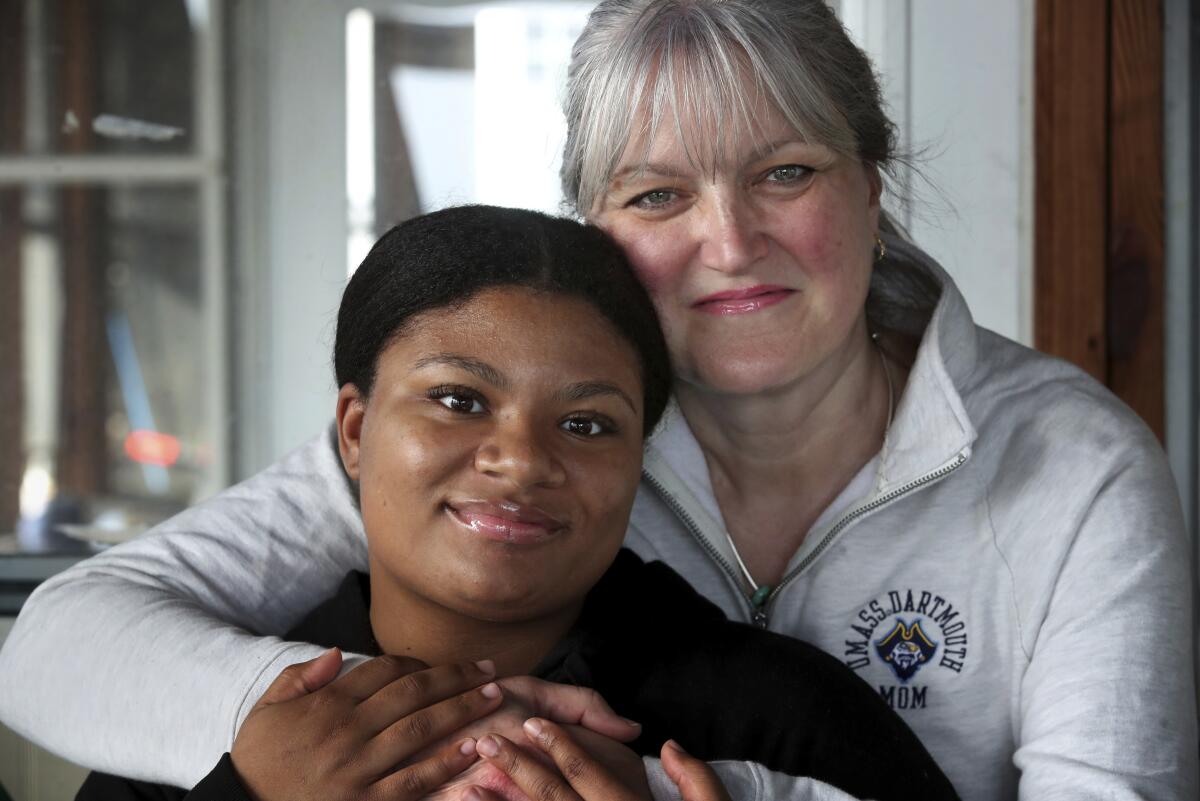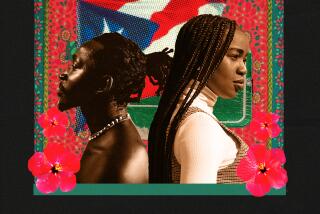House passes bill to prohibit discrimination based on hair

- Share via
WASHINGTON — Black people who wear hairstyles like Afros, cornrows or tightly coiled twists should not face bias in society, school and the workplace, the U.S. House said Friday in voting to make it explicit that such discrimination is a violation of federal civil rights law.
“There are folks ... who think because your hair is kinky, it is braided, it is in knots or it is not straightened blond and light brown, that you somehow are not worthy of access,” Rep. Bonnie Watson Coleman (D-N.J.), the bill’s lead sponsor, said during debate. “Well, that’s discrimination.”
The House voted 235 to 189 to prohibit discrimination based on hair texture or style. The bill now goes to the Senate. President Biden has said he will sign the bill, known as the Crown Act, into law if it passes.
All but 14 Republicans voted against the measure, calling it unnecessary and a distraction. They said protections against hair discrimination already exist in several federal laws.
But House Democrats noted that judges have dismissed some cases because current laws do not directly cover discrimination based on hair.
Rep. Ilhan Omar (D-Minn.), Congress’ first Somali American, called the GOP’s opposition to the bill “quite disheartening.”
“These members, who are mostly male and white ... really should leave it up to the policymakers who have done the work and who have experienced this level of discrimination,” Omar said in an interview Friday.
The bill mentions a variety of hairstyles and textures that often draw prejudice against Black people.
Supporters pointed to a 2019 study by Dove in which 1 in 5 Black women working in office or sales settings said they had to alter their natural hair. The study also found Black students are far more likely to be suspended for dress code or hair violations.
Coleman began to work on the proposal after incidents of discrimination made national headlines.
One involved twins Mya and Deanna Cook of Malden, Mass., who in 2017 were told by their high school staff to remove their box braids. They refused, saying a ban on hair extensions was discriminatory and unevenly enforced.
Deanna, a runner headed for the state finals, was kicked off the track team. Mya was removed from the softball team and told she couldn’t attend the prom.
The Massachusetts attorney general eventually ordered the school to abandon the rule. But the twins say the traumatic experience stays with them.
In December 2018, New Jersey high school student Andrew Johnson, 16, was forced to cut off his dreadlocks courtside or forfeit a wrestling match. He won the match but appeared distraught.
Over a dozen states have passed legislation against race-based discrimination of hair in employment, housing, school and the military.
The Associated Press has documented the discrimination some Black women face in the service, being labeled as “aggressive or difficult” and their natural hair as unkempt or unprofessional.
Sen. Cory Booker (D-N.J.), the lead sponsor in the Senate, said passing the Crown Act should ensure that all people can “wear their hair proudly without fear or prejudice.”
“No one should be harassed, punished, or fired for their natural hairstyles that are true to themselves and their cultural heritage,” Booker said.
More to Read
Sign up for Essential California
The most important California stories and recommendations in your inbox every morning.
You may occasionally receive promotional content from the Los Angeles Times.













